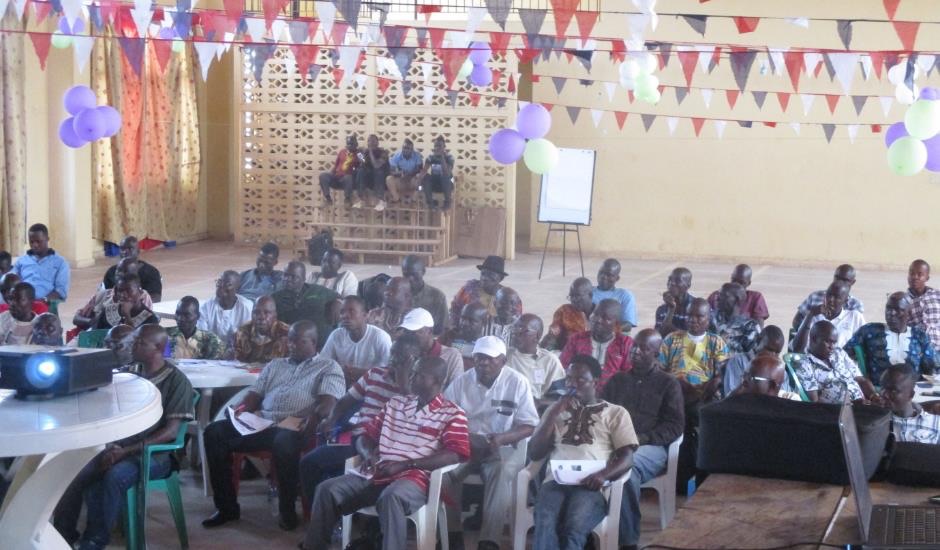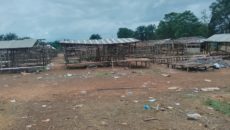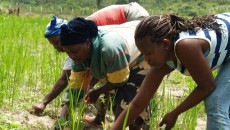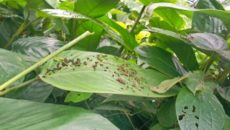SANNIQUELLIE, Nimba – The Ministry of Agriculture, with support from the International Fund for Agricultural Development, has launched the US$30 million Tree Crop Extension Project in Nimba.
At the project launch on Monday, January 7 in Sanniquellie, the deputy agriculture minister for research, development, and extension, Sayma Cyphus, said the project would be implemented in eight districts over six years.
Cyphus said the project would link cocoa farmers to market and services through cooperatives and private sector partners. These farmers are organized at the grassroots level, in traditional community-based labor groups and farmers field schools.
“The government of Liberia is taking the IFAD-sponsored agriculture very seriously and the ministry will do all in its power to ensure the successfulness of the project,†he said.
Under the project, IFAD will be responsible to provide US$22 million or 71.8 percent of the total cost to finance revitalization of cocoa plantations and supply of improved planting materials. Cyphus said the amount will be used to rehabilitate and maintain feeder roads, strengthen cooperative of cocoa farmers, build the capacity of value chain stakeholders and cover operating costs of the project.
He also disclosed that the Adaptation for Smallholders Agriculture Program, an implementing partner, will provide US$4.5 million, constituting 14.6 percent of the project cost, for financing climate change resilience activities through international partnerships, including training of technicians and provision of solar dryers.
The government will contribute US$1.9 million or 6 percent in-kind to cover the costs associated with office accommodation for project implementation and taxes on contracts and salaries of Ministry of Agriculture staff.
The deputy minister pointed out that beneficiary districts will contribute US$1.35 million or 4.4 percent for labor cost for revitalization and replanting of cocoa plantations, the management of village nurseries, and construction of solar dryers.
“Everything needed by the selected cocoa farmers will be provided during the course of the project implementation,†he explained.
As a result, he said the project will reach 11,000 beneficiaries, including 8,000 smallholders cocoa producers, while 2,400 farmers will also benefit from access to roads, input supply, and market linkages.
Cyphus said the goal is to improve incomes and climate change resilience of smallholder cocoa producers, particularly women-headed households in Nimba.
“The project was approved by the IFAD executive board on December 30, 2015, and it became effective for disbursement on June 8, 2017,†he disclosed.
He told participants during the first day of the workshop prior to the official launch of the project that the project will sign an annual performance-based memorandum of understanding with cooperatives.
The project will also incorporate the Central Agriculture Research Institute for the provision of improved planting materials, germplasm screening, the development of a seed station, as well as backstopping to villages and nurseries.
“It will establish 320 village nurseries and supply improved hybrid seeds, seedlings, equipment and driers to smallholder farmers,†he added.
The deputy minister further said the project would rehabilitate 200 km of existing farm-to-market roads with proper drainage systems and crossing points of culverts and bridges, as well as establish a viable routine maintenance program in project communities.
“The project will train 8,000 farmers in grafting and identification of suitable cocoa germ-plasm,†he added.
Meanwhile, Nimba’s county inspector, Reginald Mehn, has described the project as a welcoming initiative for farmers in the county.
Mehn urged would be beneficiary farmers in the targeted districts to take advantage of the opportunity to improve their skills and productivity in the county. He also challenged the districts to work in line with the project’s guidelines to encourage the partners to do more.
More than 60 representatives of line ministries and agencies, organizations, and cooperatives participated in the first training.
Featured photo by Franklin Nehyalor



